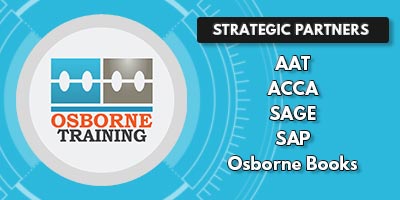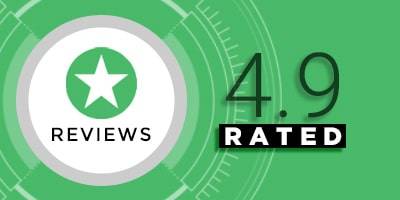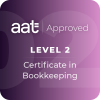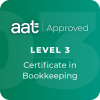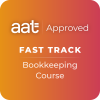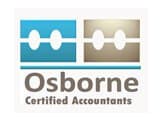
An Overview of Commonly Used Accounting Software: Choosing the Right Fit
In the dynamic landscape of finance and business management, the right accounting software can make all the difference.
As technology continues to evolve, these software solutions have become essential tools for individuals, small businesses, and large corporations alike.
This overview aims to demystify some of the most commonly used accounting software, helping you navigate the options and find the right fit for your specific needs.
1. Sage 50cloud:
Overview: Formerly known as Peachtree, Sage 50cloud is desktop accounting software that combines traditional accounting tools with cloud access. It’s designed for small businesses and offers robust features for financial management.
Key Features:
- Accounting and Financial Reporting:
- Sage 50cloud offers comprehensive accounting functionalities, including general ledger, accounts payable, and accounts receivable.
- Users can generate detailed financial reports to gain insights into the financial health of their business.
- Inventory Management:
- A notable feature is its inventory management capabilities, which allow businesses to track stock levels, manage reordering, and control costs associated with inventory.
- Job Costing:
- Especially valuable for service-based businesses and those involved in project management, Sage 50cloud provides robust job costing tools. This feature aids in tracking project-related costs and profitability.
- Bank Reconciliation:
- Efficient bank reconciliation tools help businesses ensure that their records align with actual bank transactions. This is essential for maintaining accuracy in financial statements.
- Payroll Processing:
- Sage 50cloud includes payroll processing features, enabling businesses to manage employee salaries, deductions, and compliance with tax regulations.
- Cloud Integration:
- The “cloud” in Sage 50cloud reflects its integration with cloud services. This allows users to access their financial data securely from anywhere, facilitating collaboration among team members and accountants.
- User-Friendly Interface:
- Sage 50cloud maintains a user-friendly interface, making it accessible to individuals with varying levels of accounting expertise. This has been a key factor in its enduring popularity among small business owners.
Best Fit and Ideal Users:
- Small to Medium-sized Businesses: Sage 50cloud is well-suited for small to medium-sized businesses that require comprehensive accounting tools without fully migrating to cloud-based solutions.
- Service-Based Businesses and Project Management: Its robust job costing features make it particularly useful for businesses engaged in services or projects where tracking costs and profitability are critical.
- Desktop Preference: For businesses that prefer the control and familiarity of desktop-based accounting software, Sage 50cloud provides a powerful solution.
Considerations:
- Desktop-Based: Sage 50cloud is primarily a desktop application. While it has cloud integration, some businesses may prefer entirely cloud-based solutions.
- Learning Curve: Like any comprehensive accounting software, there might be a learning curve for new users. However, Sage has a range of resources and support to assist with onboarding.
- Scalability: While it is suitable for small to medium-sized businesses, larger enterprises with complex accounting needs might find other solutions more scalable.
2. QuickBooks:
Overview: QuickBooks, developed by Intuit, is a widely used accounting software known for its user-friendly interface. It caters to businesses of all sizes and offers features such as invoicing, expense tracking, and financial reporting.
Key Features:
- Invoicing and Payment Tracking
- Expense Management
- Financial Reporting
- Payroll Processing
Best For: Small to medium-sized businesses, freelancers, and independent contractors.
3. Xero:
Overview: Xero is a cloud-based accounting software designed for small and medium-sized businesses. It’s praised for its accessibility, real-time collaboration, and comprehensive set of accounting tools.
Key Features:
- Online Invoicing and Billing
- Bank Reconciliation
- Inventory Management
- Expense Claims
Best For: Small businesses, startups, and those who prefer cloud-based solutions.
4. FreshBooks:
Overview: FreshBooks is a cloud-based accounting solution tailored for service-based businesses and freelancers. It’s renowned for its intuitive design and features focused on client invoicing and time tracking.
Key Features:
- Invoicing and Payment Processing
- Time Tracking
- Expense Management
- Project Collaboration
Best For: Freelancers, service-based businesses, and consultants.
6. Wave:
Overview: Wave is a free accounting software designed for small businesses, freelancers, and sole proprietors. It provides essential accounting features without the cost, making it an attractive option for startups.
Key Features:
- Invoicing and Receipt Scanning
- Expense Tracking
- Personal and Business Accounting
- Payroll (additional cost)
Best For: Small businesses and freelancers looking for a cost-effective solution.
Choosing the Right Fit:
Selecting the right accounting software depends on various factors, including the size and nature of your business, budget constraints, and personal preferences. Here are some considerations:
- Business Size: Choose software that aligns with the scale and complexity of your business operations.
- Cloud vs. Desktop: Consider whether you prefer the flexibility of cloud-based solutions or the control of desktop software.
- Features: Assess your specific accounting needs, such as invoicing, payroll, or inventory management, and choose software that meets those requirements.
- Scalability: Ensure that the software can grow with your business and accommodate future needs.
- User-Friendly Interface: Opt for software that aligns with your comfort level and provides an intuitive user experience.
Over to you
In conclusion, the right accounting software is a powerful ally in managing your financial affairs.
By understanding the features and nuances of popular solutions, you can make an informed decision that aligns with the unique requirements of your business or personal finances.
Whether it’s the accessibility of QuickBooks, the cloud-based convenience of Xero, or the cost-effective simplicity of Wave, the diverse options cater to a spectrum of users and business types.
Out of the above-mentioned accounting software, Sage 50 is the most widely used and demanded one.
Learn Sage 50cloud and be a Pro with our Sage 50 Accounting Courses or Sage 50 Payroll Courses.
